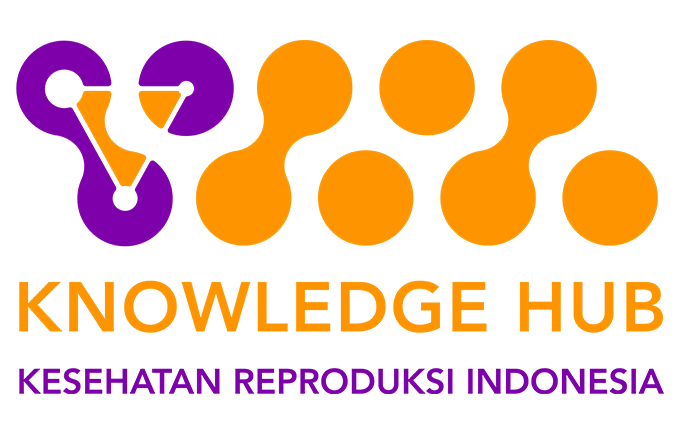Indonesia has produced substantial best practices and lessons learned in family planning and maternal health programmes, but disseminating them remains a challenge. This is where the Knowledge Hub for Reproductive Health comes in.
Introducing the Knowledge Hub
Indonesia is still facing challenges in reproductive health research and information dissemination. Despite countless best practices and lessons learned from existing family planning and maternal and child health programmes, Indonesian researchers and programme managers that participate in research dissemination, including writing manuscripts, getting published in accredited journals, and participating in national and international scientific meetings, remain few and far between.
To support the improvement of maternal and child health, family planning, and reproductive health in Indonesia, as included in the National Midterm Plan (RPJMN) 2020-2024, the United Nations Population Fund (UNFPA) Indonesia has established the Knowledge Hub for Reproductive Health, an interactive platform and scientific forum to develop evidence-based studies on reproductive health, in collaboration with the Ministry of National Development Planning/National Development Planning Agency (Bappenas) and University of Indonesia’s Faculty of Public Health (FKMUI).
“Bappenas strives to improve evidence-based knowledge products by establishing Knowledge Hub as a scientific forum for developing studies in the field of reproductive health to increase awareness of various stakeholders on the reproductive health situation in Indonesia,” Deputy of Human, Societal and Cultural Development of Bappenas Mr. Subandi Sardjoko said during its virtual launch on 25 November 2020, which coincided with the National Reproductive Health Conference that UNFPA organized in collaboration with the Association of Indonesian Public Health (IAKMI).
The Knowledge Hub is developed to “serve both as a clearing house for knowledge assets and a forum for discussion and exchange of information and ideas among interested parties, including government, the academic community, civil society organizations, international development partners and other stakeholders,” said Ms. Anjali Sen, UNFPA Representative to Indonesia,
As an online platform for exchanging critical reproductive health information such as research results, lessons learned, experiences, and ideas, the Knowledge Hub allows experts and practitioners to create more effective and inclusive networks where peers and experts can provide technical inputs and support for each other as needed.
As a community of reproductive health researchers and practitioners, the Knowledge Hub is also a great platform to promote priority research agenda focusing on the production of high-quality reproductive health-related studies that address priority information needs in the Indonesian context. It is a platform that seeks to strengthen the capacity of programme personnel in documenting lessons learned, as well as FP practitioners at the national and sub-national levels in using data for evidence-based policy making, programme planning and programme improvement.
Ultimately, the Knowledge Hub for Reproductive Health seeks to improve the performance of the national reproductive health programme. As the initiator and promoter of the Knowledge Hub, UNFPA is committed to supporting Indonesia in knowledge management to inform decision-making processes for policy and programme strengthening. UNFPA also encourages Indonesian researchers and academics to promote SRH knowledge and gain recognition by the global community.
Addressing Challenges in Reproductive Health in Indonesia
Meanwhile, some challenges in reproductive health remain, including high rates of unwanted pregnancy and unmet needs that lead to maternal mortality, lack of access to quality reproductive health information and services, threat of infectious diseases including HIV and sexually transmitted infections (STIs), and malnutrition that affects reproductive health status. The complexity of reproductive health issues requires the engagement of multidisciplinary sectors, including policy makers, researchers, programme managers, youth and civil society organizations, and the private sector.
Therefore, it is the mission of the Knowledge Hub for Reproductive Health to contribute in producing reproductive health knowledge that can inform evidence-based policy making and serve as the basis for strengthening reproductive health programmes and services.
The Knowledge Hub has already generated several priority products in 2019-2020, including a report on the Impact of Family Planning on Maternal Mortality in Indonesia , a study on the impact of COVID-19 on reproductive health, and the socio-economic analysis and its relation to the utilization of family planning and maternal health services in Indonesia. These studies are critical to the government’s work in mapping strategic issues and providing recommendations in addressing challenges in reproductive health in Indonesia.
By facilitating the development and sharing of knowledge on innovations and good practices, the Knowledge Hub for Reproductive Health supports the achievement of reproductive health development targets in Indonesia.
Anggraini Sariastuti
Family Planning Partnership & Communications Associate
UNFPA Indonesia


